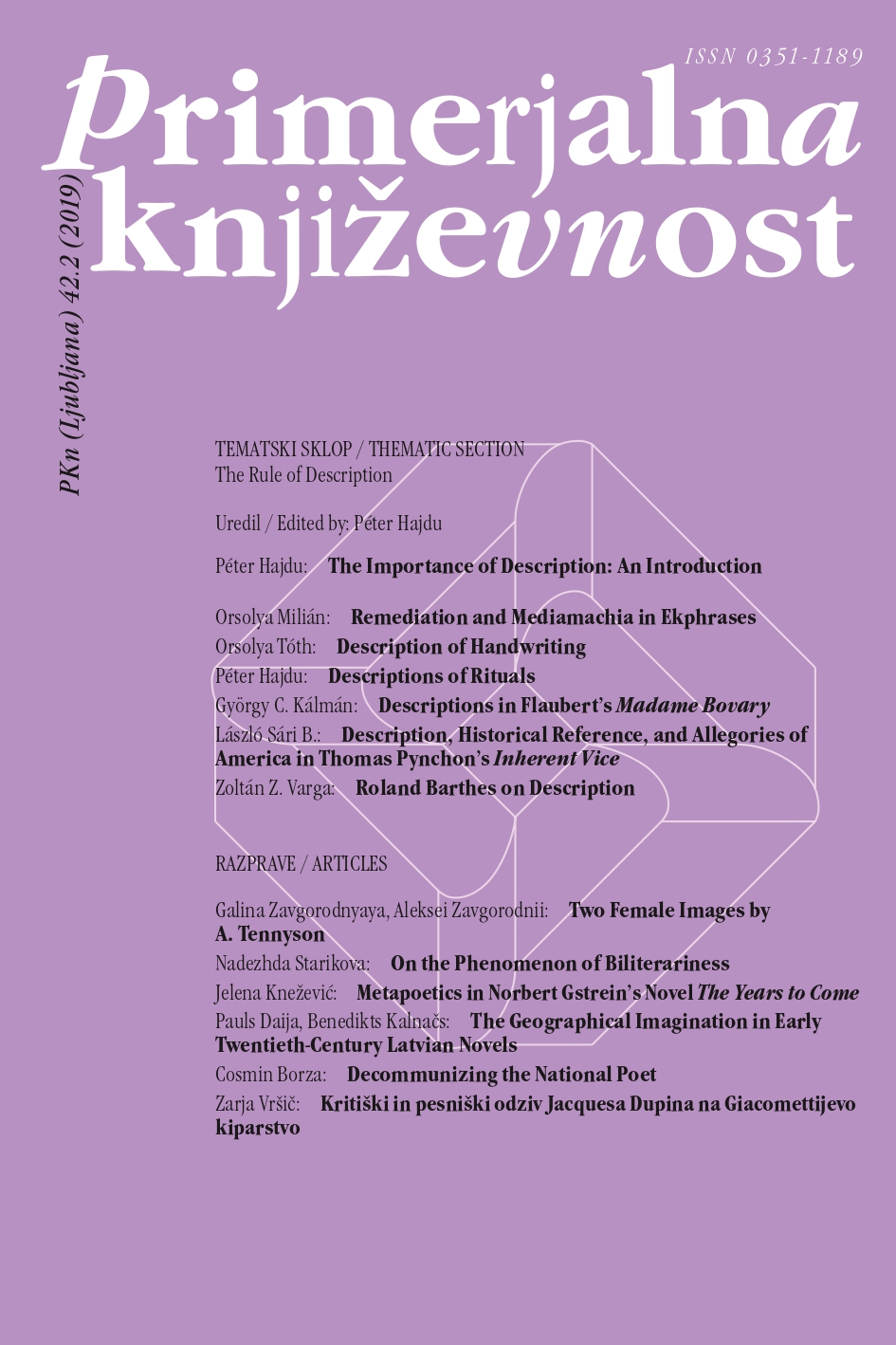Description Degree Zero and the Un-Reality Effect: Roland Barthes on Description
Keywords:
narratology, narrative structure, description, insignificant details, ideological criticism, reality effect, cultural semiotics, Barthes, RolandAbstract
In his work, Roland Barthes raises the issue of description several times in a context that appears to be connected to the equally recurrent theme of the resistance to meaning. Barthes explored the function of description in two major fields of study: the field of fictional narratives and the field of visual signs. My paper focuses on the former in order to trace Barthes’s theoretically divergent accounts regarding description’s function and the presence of insignificant detail in narrative texts. Firstly, I analyze how Barthes attributed an ideology-critical function to description and the superfluous detail in critical debates that took place in the 1950s in connection to the French Nouveau Roman. Following this, my study focuses on the new position occupied by description in Barthes’s structural narrative theory. In the last section of the paper, the notion of reality effect, more precisely, the way in which Barthes transforms and redefines the function of seemingly insignificant details in a narrative as operators for the autonomy of textual signifiers is examined.References
Barthes, Roland. Writing Degree Zero. Tran. Anette Lavers & Colin Smith. Boston: Beacon Press, 1970.
– – –. “Literal Literature.” Critical Essays. Evanston: Northwestern University Press, 1972. 51–58.
– – –. “Objective Literature.” Critical Essays. Evanston: Northwestern University Press, 1972. 13–24.
– – –. “An Introduction to the Structural Analysis of Narrative.” Tran. Lionel Duisit. New Literary History 6.2 (1975): 237–272.
– – –. “The Photographic Message.” Image, Music, Text. Ed. and tran. Stephen Heath. London: Fontana Press, 1977. 15–31.
– – –. “The Rhetoric of the Image.” Image, Music, Text. Ed. and tran. Stephen Heath. London: Fontana Press, 1977. 32–51.
– – –. Camera Lucida. Reflections on Photography. Tran. Richard Howard. New York: Hill and Wang, 1981.
– – –. “The Reality Effect.” French Literary Theory Today. A Reader. Ed. Tzvetan Todorov, tran. R. Carter. Cambridge: Cambridge University Press, 1982. 11–17.
Rancière, Jacques. Le fil perdu. Essais sur la fiction moderne. Paris: La Fabrique Éditions, 2014.
Robbe-Grillet, Alain. “Nature, Humanism, Tragedy.” For a New Novel. Essays on Fiction. Tran. Richard Howard. New York: Grove Press, 1965. 49–76.


